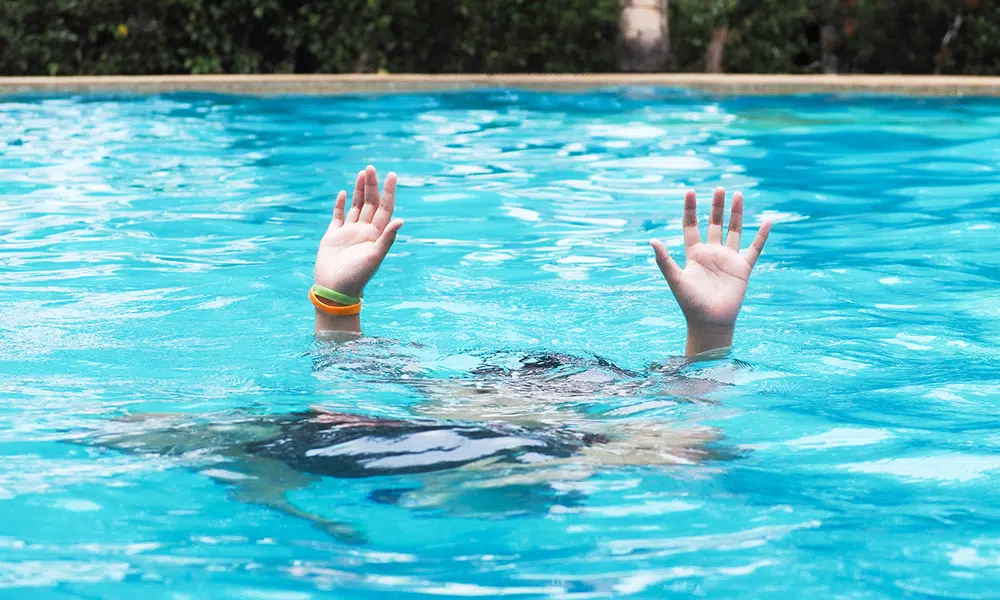Whether you live in Miami year-round, are a “snowbird” who spends winters in southern Florida or are just visiting the Miami area, the odds are that you will spend time in a swimming pool, given how common pools are in the Sunshine State. In fact, about 40 percent of all swimming pools in the nation are in Florida and California, with Florida topping the list for the state with the most swimming pools.
A swimming pool can provide endless hours of fun and exercise; however, it can also be very dangerous, especially for young children and the elderly. According to the Florida Department of Health (FDOH), Florida has the highest unintentional drowning death rate in the nation among children ages 1 to 4 years. Florida also ranks 5th for unintentional drowning deaths among children under age 17 and 4th in the nation for unintentional drowning deaths among adults aged 18 and older.
Despite state laws and initiatives to increase pool safety, the number of childhood deaths due to drowning is increasing. Tragically, in 2021, 98 children drowned in Florida, up 42% from the previous year. We don’t yet know how many fatal childhood drowning incidents will occur in 2022, but we do know that historically Miami-Dade County has one of the highest unintentional drowning death rates for young children within the State of Florida.
If you or a beloved family member were injured in a Miami swimming pool accident, understanding your legal rights and who might be held liable for the injury or fatality is important in helping you to cope with your losses and achieve a sense of justice. In this blog post, I’ll discuss common causes of swimming pool accidents, liability for them and your rights under Florida law.
What Are Some Common Causes of Miami Swimming Pool Injuries and Drownings?
Most of us jump into a swimming pool without giving much thought to the potential dangers that could be lurking in and around the pool. Even knowing how to swim does not guarantee your safety in a swimming pool. In fact, there are several common causes of swimming pool injuries and drownings, including:
- Diving and slide injuries. Serious injuries, including traumatic brain injury (TBI), paralysis, or drowning death, can occur on a defective or improperly installed and/or maintained slide or diving board.
- Failing to install/maintain a fence around the pool. When a pool owner fails to install and/or maintain the required barrier around a pool, young children can wander into the pool and suffer life-altering injuries or death.
- Inadequate training or supervision. Public pools and those found at hotels are often required to have lifeguards on duty to supervise swimmers. An inadequately trained lifeguard, or the complete absence of a lifeguard, can result in swimming pool injuries and drownings.
- Defective equipment. Anything from a defective ladder to a defect in the pool’s water filtration system can contribute to a swimming pool injury. A pool’s filtration system includes powerful suction that can trap hair or clothing, causing a swimmer to drown.
- Slipping or falling. When the area around a pool is not properly constructed and/or maintained, serious slip and fall injuries can happen.
- Inflatable toy injuries. Inflatable pool toys present a hidden drowning threat because, among other things, a swimmer can become trapped underneath when they capsize.
- Electrocution. Any time electricity and water mix, extreme caution must be used. A defectively installed or improperly maintained pump, filtration, or light system can cause a potentially deadly electrocution injury or drowning.
Who Is Liable for Miami Swimming Pool Injuries and Drownings?
Frequently, a swimming pool “accident” is not really an accident but rather, a preventable event. When that is the case, an injured victim or surviving family members may have the right to bring an action against another party (or parties) and hold them liable for damages.
Florida Property Owners and Premises Liability
The owner or occupier of the property on which a swimming pool is located may be liable under the legal doctrine of premises liability, which is a special type of personal injury lawsuit. This may apply to both privately owned residences and public swimming pools. Under the premises liability doctrine, a property owner, manager and/or occupier has a duty of care to maintain their property in such a way that it doesn’t endanger invited guests or visitors to their property.
The status of the visitor determines the extent of the duty of care owed to the visitor. That, in turn, determines what constitutes a breach of that duty of care, potentially subjecting the owner/occupier to legal liability for a swimming pool injury or drowning. Visitors are classified as “public/business invitees” or “invited licensees,” with the highest duty of care owed to public/business invitees. A visitor to a public swimming pool is classified as a public invitee, while the guest at a hotel is a business invitee. A guest at a swimming pool located at a private residence is considered an invited licensee.
For all visitors, the duty of care requires property owner/occupiers to keep their property in a reasonably safe condition and to provide notice of any known dangers on the premises if a hazard cannot be repaired or removed immediately. In addition, because a swimming pool is considered an “attractive nuisance,” all swimming pool owners have a heightened duty of care to prevent injury. The law recognizes this duty within the Florida Building Code by requiring a permanent barrier to be erected when a swimming pool is installed. Federal law also requires all pools to be equipped with an anti-entrapment device to prevent a swimmer’s clothing, jewelry, limbs or hair from being trapped in the drain. Failure to install/maintain either the required barrier or anti-entrapment device would likely be a breach of the owner’s duty of care owed to anyone using the swimming pool.
Defective Swimming Pool Products and Florida Product Liability Law
If defective parts or equipment, such as diving boards, drains, filtration systems or ladders, caused or contributed to a swimming pool injury or drowning, anyone involved in the “chain of distribution” could be held accountable in a product liability lawsuit. This could include parties such as the designer, manufacturer, distributor, or installer.
Under Florida product liability law, injured victims have a right to bring a civil action for damages against the parties responsible for the defective product, including those who manufactured, constructed, designed, installed, prepared or assembled the product. Claimants in these cases do not have to prove actual negligence or intent to harm, only that the injuries they received in an “accident” were greater than those they would have received had the defective product not been involved.
Contact the Experienced Miami Swimming Pool Accident Attorneys at Boyers Law Group
Understanding liability and the various laws and legal procedures involved in Florida swimming pool accident injury and drowning cases can be very challenging. If you or a loved one suffered a swimming pool injury or drowning, the experienced Miami swimming pool accident attorneys at Boyers Law Group can help. We have the knowledge, resources and commitment needed to pursue the accountable party (or parties) and get justice for you and your family.
Let us put our experience and dedication to work for you pursuing justice and the full compensation to which you are entitled. Contact us today for your free initial consultation by calling 305-512-7600 or by filling out the “Tell Us What Happened” form on our website.

